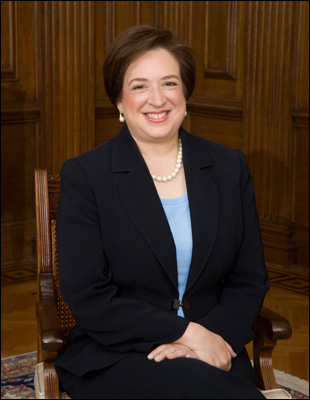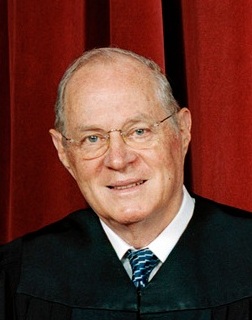TMLC Senior Counsel Hopeful Justice Kennedy Will Side with Hobby Lobby and Religious Freedom
|
Thomas
More Law Center Senior Trial Counsel, Erin Mersino, was in the U. S.
Supreme Court gallery yesterday, as the Court heard the historic oral
arguments regarding challenges to the HHS Mandate filed by Hobby Lobby
and Conestoga Wood Specialties Corp.
Mersino observed, “There was a division amongst the Court. Justice Kagan was clearly advocating to uphold the Mandate, while Justices Scalia, Roberts, and Alito recognized how the Mandate violated the plaintiffs’ freedom of religion.”
Continued Mersino, “But based on comments of the various Justices, and particularly, Justice Kennedy, I am hopeful that religious freedom will prevail with the majority of the Court. The government argued that the Mandate was necessary but never supported why the Mandate was a necessity—this is because it is not. There are a number of alternatives available to the government which would not involve stripping people of their religious freedom.”
The arguments in these historic cases on religious freedom, lasted for approximately 90 minutes.
Hobby Lobby and Conestoga were represented by attorney Paul Clement who responded to questions from the Justices ranging from vaccinations and blood transfusions to what other options were available for the employers and employees. The argument also highlighted that millions of companies were already given exemptions from the Mandate, such as non-profit corporations and other similarly situated for-profit corporations, without hesitation, thus making it more suspect why people such as the plaintiffs could not, also, be granted an exemption.
Arguments for the HHS Mandate were presented by Solicitor General Donald Verilli whose position that the government has a compelling interest in forcing employers to pay for morally objectionable contraceptives was weakened by a discussion of the many exemptions to the HHS Mandate that have been offered. The HHS Mandate requires employers to provide employee health insurance plans which include abortion-causing forms of birth control, despite religious objection, or submit to draconian fines.
Mersino has filed 11 federal lawsuits challenging the HHS Mandate and also submitted an amicus brief to the Supreme Court supporting Hobby Lobby and Conestoga’s position that the HHS Mandate represents a violation of religious liberty under the First Amendment and the Religious Freedom Restoration Act (RFRA).
Mersino observed in a brief analysis of the arguments that, “The argument began with Justice Sotomayor cutting off Paul Clement during the introduction of his argument and asking a hypothetical question about a future plaintiff potentially holding a religious objection to providing vaccinations. This was beyond the facts posed by the case before the court; however later in the argument, Justice Alito stated that there was already federal funding in place for employees who needed the vaccinations of which Justice Sotomayor complained.”
 |
| English: Elena Kagan, Justice of the Supreme Court of the United States. (Photo credit: Wikipedia) |
Many court observers share Mersino’s view that the outcome will hinge on Justice Kennedy. Concerning the possible outcome of the arguments, Mersino is hopeful, saying, “I believe that the ultimate decision will come down to Justice Kennedy. I am hopeful that he will recognize that the Mandate is the government forcing individuals to violate their sincerely held religious beliefs or pay millions of dollars in penalties. The issue really is that simple. Further, the Mandate was not a decision made not by any act of Congress. The Mandate, instead, is the product of a government appointee from the Obama Administration, which has never been the subject of a legislative vote. Should a presidential appointee be allowed to dictate what religious values and beliefs Americans can hold and practice?”
 |
| English: Justice Anthony Kennedy, 2009. (Photo credit: Wikipedia) |
The Supreme Court’s ruling is expected in June 2014.



